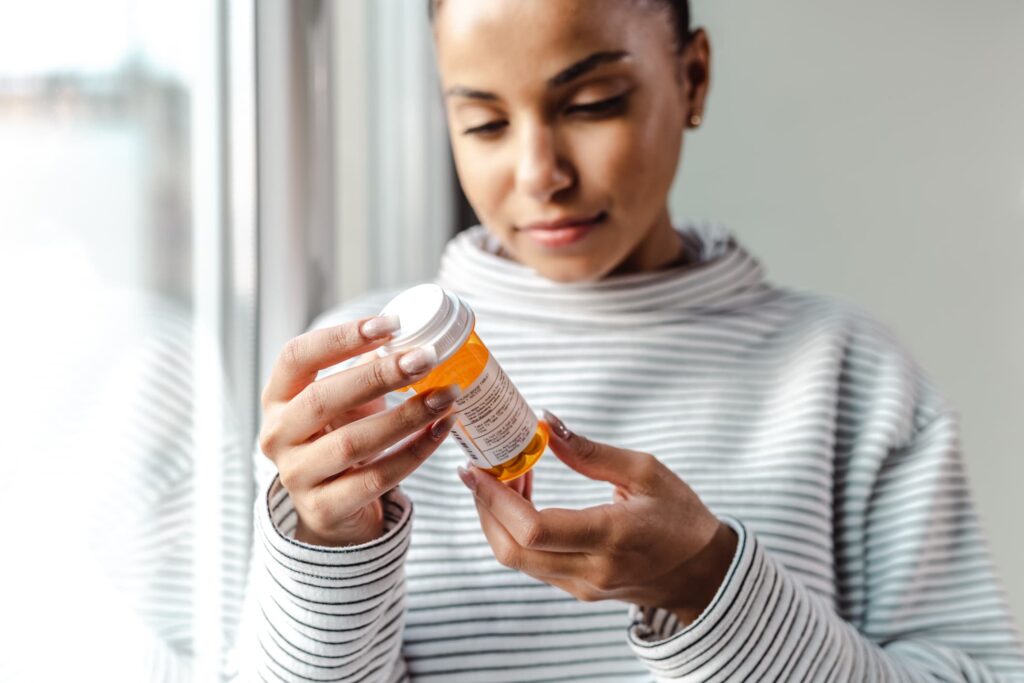Your mental health should always be a priority. It can affect everything from your relationships with your loved ones to your ability to get through the day. There’s no denying the strain on your mental health that life’s challenges can cause. And that can sometimes lead to taking substances as a way to try to quiet down negative thoughts and feelings.
Today’s opioid overdose epidemic and mental health crisis are two often overlapping issues. While it’s possible to experience opioid use disorder without having significant mental health distress, and vice versa, there’s a large overlap between them. Approximately 64% of people with opioid use disorder (OUD) have a mental health condition.
By understanding how mental health is connected to substance use, you can gain a better understanding of the factors that may be contributing to your challenges, and know when to seek treatment.
How mental health disorders contribute to the opioid crisis
Millions of people across the U.S. experience mental health disorder symptoms that can impact their overall quality of life. In 2022, more than 59 million U.S. adults lived with a mental health disorder. Many people who are diagnosed with a disorder are treated with a combination of therapy and medication to reduce their symptoms on a daily basis. However, some people turn to opioids and/or other substances as self-medication or a coping mechanism.
While any mental health disorder can lead a person to try to self-medicate with opioids, it’s often seen in people with:
- Depression
- Post-traumatic stress disorder
- Generalized anxiety disorder
- Panic disorder
People who are experiencing mental health distress or disorders may take opioids as opposed to prescription medication for the following reasons:
- Euphoric effects that cause a rush of positive emotions and feelings
- Relaxing sensation
- Reduced pain from physical symptoms, such as muscle tension from anxiety
How people with opioid use disorder can develop mental health disorders
Not only can people with mental health distress develop opioid use disorder, but the opposite is also true. Using opioids can lead to mental health concerns.
People with opioid use disorder can develop symptoms of mental health disorders, such as depression and anxiety. It can also lead to unusual or intense mood changes that can strain personal and professional relationships.
Long-term opioid use can have a negative impact on a person’s mental health for a variety of reasons, including:
- Change in the brain’s reward system — Opioids interrupt or decrease the reward system in the brain, which provides feelings of motivation and pleasure. When those positive feelings are reduced, it can lead to depressive symptoms.
- Hormone imbalance — There’s a hormone and neurotransmitter called norepinephrine, which causes the body’s “fight-or-flight” response. The hormone level is decreased by opioids. When someone stops taking opioids, the brain releases more of the hormone to try to compensate, which can cause feelings of anxiety.
- Brain structural changes — There are multiple areas of the brain that affect a person’s emotions. When opioids are taken for long periods of time, the structure of these areas can be changed, leading to difficulty managing emotions and reactions to stress.
Groups can address the connection between mental health disorders and opioid use
The opioid overdose epidemic has been an ongoing issue since the ’90s that requires significant attention and reform. One of those changes that we can make is to address the mental health disorders that can be both a cause and result of opioid use. When individuals receive the appropriate mental health care and resources, it can help reduce the use of opioids.
At Groups, we care for members holistically, understanding how mental health and substance use often go hand in hand. That’s why we help with both. We may start you on a prescription of Suboxone as a way to reduce opioid withdrawal symptoms that may exacerbate feelings of depression and anxiety. Then, you’ll participate in group therapy to talk about the mental and emotional challenges that you’re experiencing. Talking about these challenges out loud, from managing mental health symptoms to managing cravings, builds relationships and community. You’ll feel less isolated and can lean on others who have been in similar situations. We also provide Recovery Support Services, like peer coaching and referrals to other healthcare providers, including those who are able to prescribe medication for the treatment of mental health conditions. We want to ensure you have a well-rounded approach to recovery.
The opioid overdose crisis won’t go away overnight, and we must always focus on mental health concerns. But Groups is meeting the needs through the conversations and resources being driven by our care team members every day.
When you’re ready to break free from opioid use disorder and improve your mental health symptoms, we’re here to help you every step of the way. Give our Recovery Support Specialists a call today for more information or to begin your recovery.




